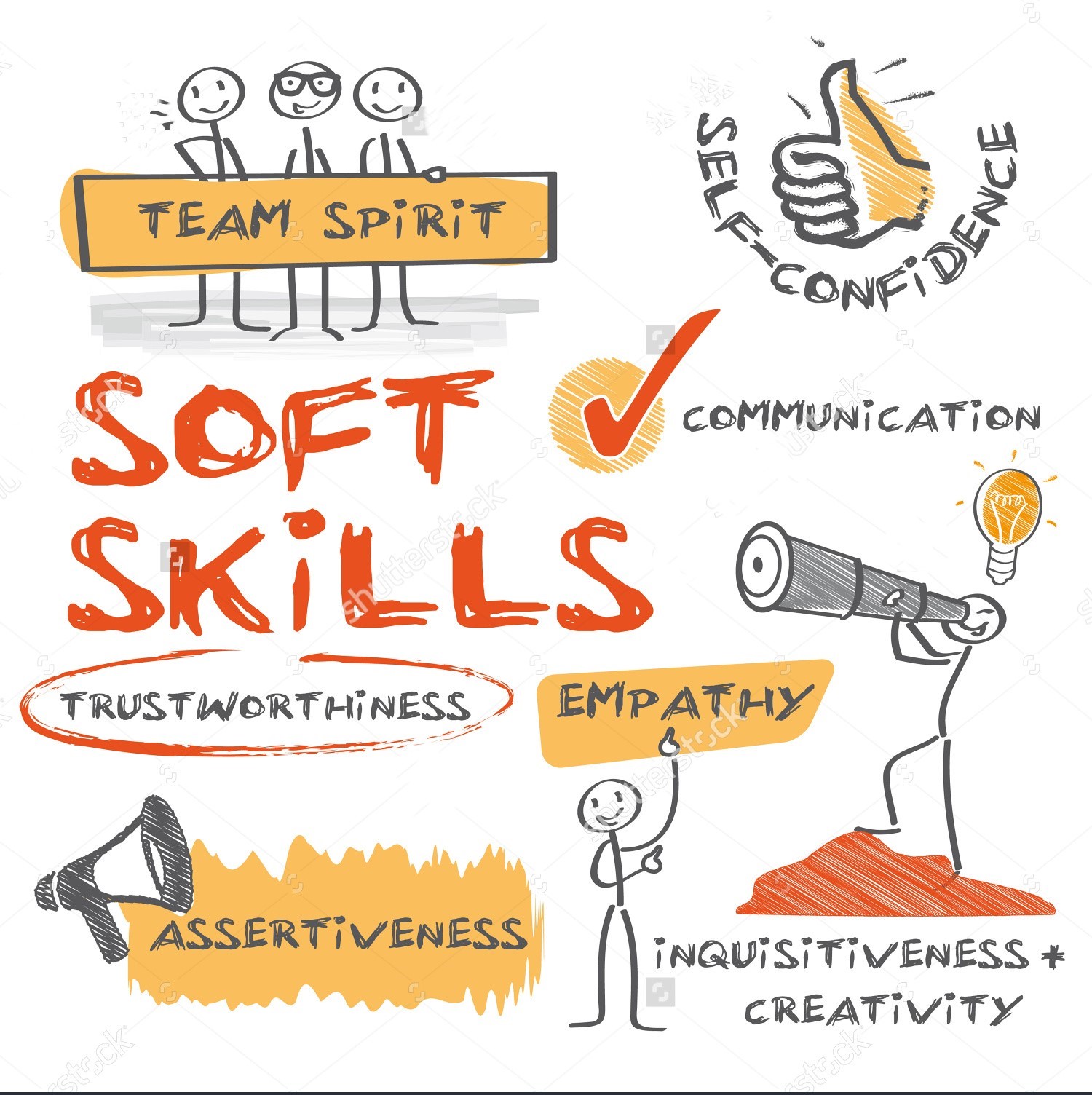
Skill Up & Stand Out: Mastering the Skills Employers Crave
How Acquiring These Skills Will Help You Launch and Propel Your Career
By: Javid Amin
The professional landscape is constantly evolving, demanding a diverse skillset for success. Gone are the days when a single talent could guarantee a long and fulfilling career. Today, employers seek individuals who can wear multiple hats, adapt to change, and think critically.
This article delves into some of the most valuable skills you can acquire to not only launch your career but also propel you forward in this dynamic environment. We’ll explore how these skills empower you to become a valuable asset in any workplace, regardless of your chosen field.
Communication: The Cornerstone of Success
Communication is the bedrock of any successful professional endeavor. It encompasses both verbal and written skills, allowing you to effectively convey your ideas, collaborate seamlessly with colleagues, and build strong relationships with clients and stakeholders.
-
Verbal Communication: The ability to articulate your thoughts and ideas clearly and concisely is paramount. This includes active listening, clear pronunciation, and the ability to tailor your communication style to different audiences.
- Mastering these skills allows you to lead and participate in productive meetings, deliver impactful presentations, and confidently negotiate deals.
-
Written Communication: Written communication is equally important. From crafting compelling emails and reports to drafting persuasive proposals and marketing materials, strong writing skills are essential for success.
- The ability to write clearly, concisely, and persuasively ensures your message resonates with the reader.
Collaboration: The Power of Teamwork
The ability to collaborate effectively with others is a crucial skill in today’s teamwork-oriented work environment. Collaboration promotes knowledge sharing, fosters creativity, and leads to better decision-making.
-
Teamwork: Being a team player involves working cooperatively towards a common goal. This includes respecting diverse perspectives, actively listening to colleagues, and contributing meaningfully to group projects.
- Strong teamwork skills foster a positive work environment and enhance overall workplace productivity.
-
Conflict Resolution: Disagreements are inevitable in any team setting. Possessing the ability to resolve conflicts constructively enables you to navigate these situations calmly and find solutions that benefit everyone involved.
- Effective conflict resolution fosters a healthy and respectful work environment, allowing teams to move forward productively.
Critical Thinking and Problem-Solving: Untangling the Knots
Critical thinking and problem-solving skills are essential for navigating today’s complex work environment. These skills enable you to analyze situations, identify issues, evaluate potential solutions, and make informed decisions.
-
Critical Thinking: Critical thinking involves analyzing information objectively, questioning assumptions, and considering all viewpoints before drawing conclusions.
- It allows you to approach challenges with a strategic mindset and devise innovative solutions.
-
Problem-Solving: Problem-solving involves identifying the root cause of an issue, brainstorming potential solutions, evaluating their effectiveness, and implementing the most suitable course of action.
- Skilled problem solvers can think on their feet, adapt to changing circumstances, and overcome unexpected obstacles.
Learning Agility: Embracing Change as a Constant
The ability to learn and adapt quickly is vital for long-term career success. The pace of change in today’s world necessitates a willingness to embrace new technologies, develop new skills, and continuously update your knowledge base.
-
Adaptability: Being adaptable means being comfortable with change and readily embracing new ideas and approaches. This allows you to transition smoothly to new roles, technologies, and industry trends.
-
Lifelong Learning: A commitment to lifelong learning demonstrates initiative and a proactive approach to professional development. It shows employers you are dedicated to continuous improvement and are willing to invest in your own success.
Time Management: Orchestrating Your Day with Efficiency
Effective time management involves prioritizing tasks, managing your schedule efficiently, and avoiding distractions. This skill ensures you meet deadlines, maximize productivity, and avoid feeling overwhelmed.
-
Prioritization: The ability to prioritize tasks allows you to focus your efforts on the most critical and time-sensitive activities. This ensures you deliver the most impactful work.
-
Organization: Being organized allows you to keep track of deadlines, commitments, and important resources. It fosters a sense of calm and allows you to navigate your workload efficiently.
-
Focus Management: The ability to focus on the task at hand helps you avoid distractions and complete tasks efficiently. There are numerous techniques to enhance focus, such as the Pomodoro Technique, which involves working in concentrated bursts followed by short breaks.
Digital Literacy: Navigating the Digital Landscape
Digital literacy refers to the ability to understand and use technology effectively. In today’s digital world, this is a fundamental skill for success in virtually any field.
-
Technology Proficiency (continued): Familiarity with industry-specific software programs and online research tools demonstrates a commitment to continuous learning and a willingness to adapt to specific workplace needs.
-
Information Literacy: The ability to evaluate the credibility of online information is crucial in today’s world of information overload. Knowing how to distinguish between reliable sources and misinformation allows you to make informed decisions based on accurate data.
-
Cybersecurity Awareness: Understanding the importance of cybersecurity and practicing safe online habits protects both your own information and that of your employer. This includes being cautious about clicking on suspicious links, using strong passwords, and being aware of common phishing scams.
Creativity and Innovation: Thinking Outside the Box
Creativity and innovation are crucial for generating new ideas, solving complex problems, and developing cutting-edge solutions. These skills enable you to stand out from the crowd and contribute meaningfully to the workplace.
-
Creative Problem-Solving: Thinking outside the box allows you to approach challenges from a fresh perspective and develop innovative solutions.
-
Idea Generation: The ability to brainstorm and generate a variety of creative ideas is valuable for product development, marketing campaigns, and other initiatives.
-
Open-mindedness: Being open to new ideas and approaches fosters a collaborative and innovative work environment.
Leadership: Inspiring and Guiding Others
Leadership skills are not limited to management positions. The ability to inspire, motivate, and guide others is valuable at all levels of an organization.
-
Visionary Thinking: Leaders can articulate a clear vision for the future and inspire others to work towards achieving it.
-
Motivation: Leaders can motivate their colleagues and teams to achieve their full potential. This may involve setting clear goals, providing regular feedback, and recognizing achievements.
-
Delegation: Effective leaders understand that they cannot do everything themselves. The ability to delegate tasks empowers team members and fosters a sense of ownership.
Entrepreneurial Spirit: Seizing Opportunities
An entrepreneurial spirit involves taking initiative, identifying opportunities, and turning them into successful ventures. It doesn’t necessarily mean starting a business from scratch; it can also be applied to intrapreneurship, where you champion new ideas and projects within your existing organization.
-
Initiative: Taking initiative demonstrates your proactive approach and willingness to go above and beyond the minimum requirements.
-
Opportunity Recognition: Being able to identify potential opportunities allows you to contribute new ideas and solutions that benefit your organization.
-
Risk Management: Entrepreneurial ventures often involve taking calculated risks. Understanding how to assess potential risks and develop mitigation strategies allows you to navigate challenges with confidence.
The Takeaway: A Skillset for Success
Acquiring the skills outlined above equips you with a versatile and powerful skillset that can propel your career forward. These skills are not mutually exclusive; they work synergistically to create a well-rounded professional profile.
Whether you are just entering the workforce or seeking to advance your career, actively developing these skills demonstrates a commitment to ongoing learning and professional growth. It showcases your adaptability, problem-solving abilities, and value as an asset to any team.
Remember:
- Identify your strengths and weaknesses. Focus on honing existing skills while actively developing areas for improvement.
- Seek out learning opportunities. Many companies offer training programs, workshops, and online resources to help employees develop their skillsets. Consider pursuing professional certifications relevant to your field.
- Network and build relationships. Connect with mentors, colleagues, and industry professionals. These relationships can provide valuable insights, career advice, and potential job opportunities.
By actively cultivating these skills and demonstrating your commitment to professional growth, you position yourself for a successful and rewarding career!

